News
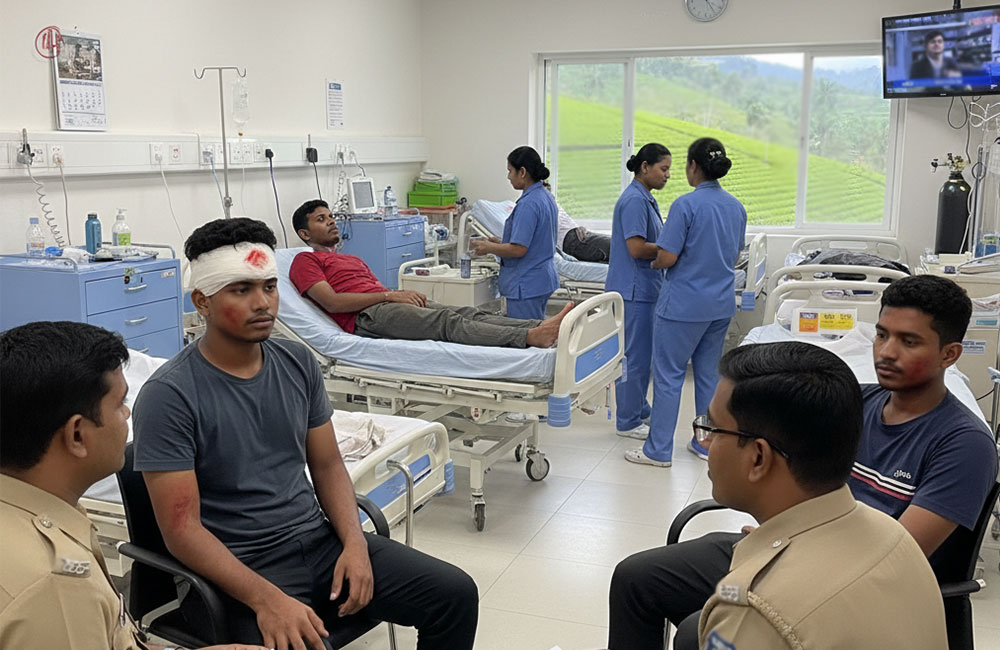
Six students from Ruhuna Uni. hospitalised after wasp attack
A group of students from the Faculty of Engineering of the University of Ruhuna have been hospitalized following a wasp attack this morning (14), police reported.
The students, who had arrived for a practical workshop at the Plantation Training Center in the Morar Estate in Bogawantalawa, were attacked by a swarm of wasps after a wasp nest in a tree was disturbed.
Six students sustained injuries as a result of the attack and were admitted to the Bogawantalawa Regional Hospital, police reported.
Many students from several universities are currently staying in hostels at the location for the practical workshop and are expected to take part in the workshop activities
Bogawantalawa Police are conducting further investigations into the incident.
( Source : adaderana.lk)

Litro Restructuring Sparks New LPG Tender Controversy
Sri Lanka’s largest state-owned liquefied petroleum gas (LPG) supplier, Litro Gas Lanka Limited, and its terminal arm, Litro Terminals (Pvt) Ltd, are moving ahead with a major restructuring process aimed at divesting government shares to private investors, amid renewed debate over transparency and energy security.
A senior Finance Ministry official confirmed that the government intends to sell either a majority or all of its shares in Litro under the ongoing state enterprise restructuring programme. “Bids were called for by the previous administration, and no action has been taken to cancel them,” the official said.
As of July 2024, eight bidders have been shortlisted to acquire stakes in Litro Gas and its terminal operations. The lineup includes major global and regional energy players such as Vitol Asia, Bharat Petroleum, Siamgas and Petrochemicals, Bgn Int Dmcc, Bayegan Dis Ticaret, Confidence Petroleum India, OQ Trading Limited, Tristar Transport, and a consortium between Infinity Holdings and National Gas Company SAOG.
This restructuring aligns with the government’s broader economic recovery plan under the US$2.9 billion IMF programme, which seeks to reduce losses from state-owned enterprises. Despite the ongoing divestiture, Litro has remained financially strong, paying Rs. 3 billion in dividends to the Treasury through its parent company, Sri Lanka Insurance Corporation, in 2024.
However, a new controversy has erupted over a tender amendment that critics claim may compromise fair competition. The latest international tender floated by Litro on August 27, 2025, to procure 380,000 metric tonnes of LPG for 2026, included a last-minute amendment before its September 23 closing date.
Under the new Clause VIII in the conflict-of-interest section, bidders are now permitted to lease a competitor’s LPG terminal at Hambantota, though Litro disclaims responsibility for logistics or product handling until delivery at its Kerawalapitiya facility.
While the clause appears to offer flexibility, industry analysts warn that it effectively encourages bidders to rely on the Hambantota terminal operated by LAUGFS Gas, Litro’s main rival. “It’s like asking a state company’s suppliers to pay rent to its competitor,” said one energy expert, questioning the wisdom of embedding operational dependence on a private rival’s infrastructure.
Litro currently operates an 8,000 metric tonne terminal at Kerawalapitiya and a 400 MT storage complex at Mabima, covering only 8.4 days of national demand. Sri Lanka’s monthly LPG requirement averages 25,000–30,000 MT, with daily consumption at around 1,000 MT. Nearly 95% of LPG is imported, as domestic refinery output from the Ceylon Petroleum Corporation (CPC) remains minimal.
By contrast, LAUGFS controls a 30,000 MT state-of-the-art terminal in Hambantota, giving it a strong logistical and transshipment advantage. This has reignited long-standing debates about energy independence and the strategic control of critical storage infrastructure.
In 2021, the government considered a public-private partnership between Litro and LAUGFS to jointly use the Hambantota terminal, with potential cost savings of US$70 per metric tonne. The proposal, championed by LAUGFS Chairman W.K.H. Wegapitiya, was shelved amid political uncertainty and security concerns.
Procurement experts warn that any tender modification must be formally issued as an addendum to all bidders. Failure to do so could invite legal challenges before the Procurement Appeal Board or even in court.
For foreign suppliers, the clause introduces cost and logistical risks, while for Sri Lankan consumers, fewer competitive bids could mean higher prices and weaker supply security.
As the restructuring and tender processes unfold, Litro’s future hangs between reform and risk—a test case for Sri Lanka’s ability to modernize state enterprises without compromising public interest or market fairness.
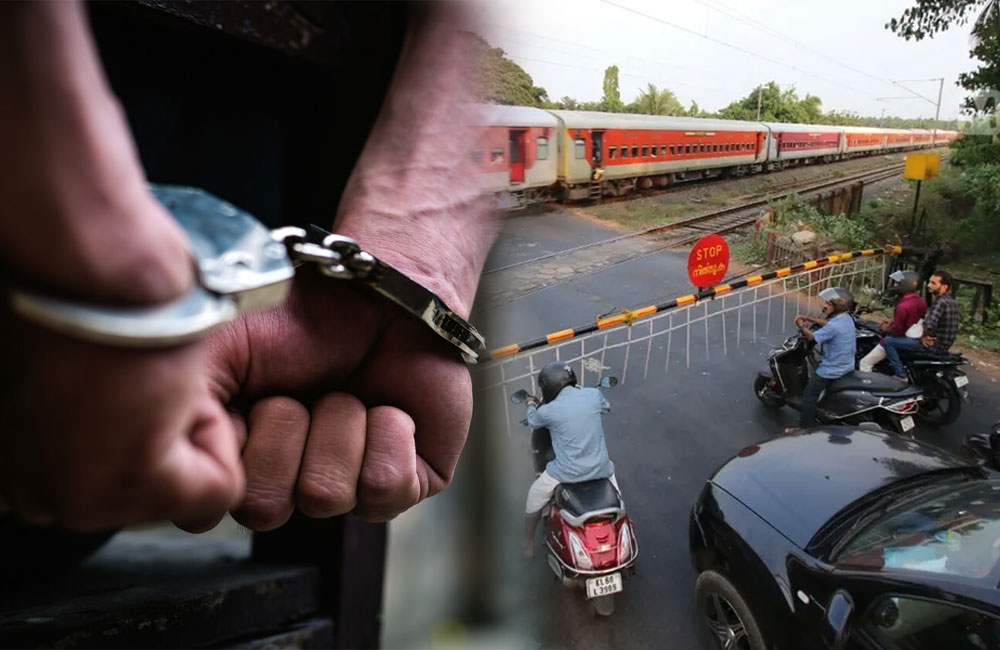
Railway Gate Operator Arrested in Kollupitiya for Reporting to Duty Drunk
A railway gate operator stationed at the highly sensitive Uttarananda Mawatha crossing in Kollupitiya was arrested yesterday after reporting to duty while intoxicated, Railway Department Spokesman Asanka Samarasinghe said.
The crossing—situated between Kollupitiya and Kompannavediya near Temple Trees—is regularly used by ambassadors, senior government officials, and other VIPs, making operational discipline and security crucial.
The arrested operator, identified as Sudath Dhammika, serves as an assistant at the Company Road railway station and also functions as the secretary of the Railway Clerks’ Parallel Services Association. He was immediately suspended from duty by the Secretary to the Ministry of Transport.
According to several railway employees, Dhammika has been linked to previous acts of misconduct and alleged attempts to create internal disputes within the system.
Authorities have taken steps to halt all salary and related payments to him with immediate effect as further inquiries continue.

Second Reading Vote on Sri Lanka’s 2026 Budget Scheduled for Today
The Second Reading vote on Sri Lanka’s 2026 Budget will take place today (14) at 6:00 p.m., the Parliament’s Department of Communication announced.
President Anura Kumara Dissanayake, in his capacity as Minister of Finance, presented the Second Reading of the Appropriation Bill for 2026 to Parliament on November 7.
The full Budget debate will continue until December 5, 2025.
The Committee Stage debate is scheduled for 17 days, from November 15 to December 5.
The Third Reading vote is expected to be taken at 6:00 p.m. on December 5. Budget debates will be held daily, except on Sundays and public holidays.
Meanwhile, the opposition has announced it will vote against the 2026 Budget during today’s Second Reading.
SLPP MP D.V. Chanaka said he would vote against the Budget, stating it does not provide adequate relief to the public.
Chief Opposition Whip Gayantha Karunathilaka also confirmed that the Samagi Jana Balawegaya (SJB) will oppose the Appropriation Bill.
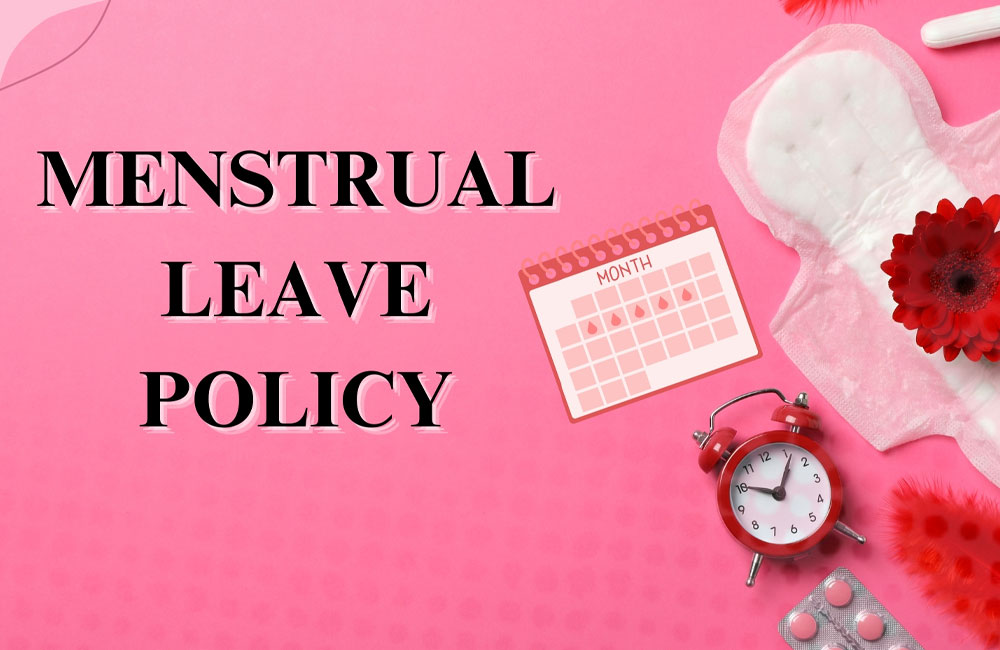
India state offers menstrual leave to all working women
The southern Indian state of Karnataka, which is also home to some of the world’s biggest IT firms, has become the first in the country to offer paid menstrual leave to all working women in formal jobs.
Under the new policy, women aged 18 to 52 working in government and private companies can take one day of menstrual leave every month, which cannot be carried forward. No medical certificate is required to avail the leave.
The policy covers 350,000 to 400,000 women in the formal sector, although it excludes a much larger cohort - estimated to be six million - who are engaged as domestic workers, daily-wage labourers, and gig workers in the unorganised sector.
Experts say the policy should extend to the informal sector.
But the state’s menstrual leave policy is still being regarded as significant for being the first to include the private sector, applying to workers regardless of job type or contract.
The concept of menstrual leave is not new. Countries like Spain, Japan, South Korea and Indonesia already offer menstrual leave. Some Indian states also offer limited menstrual leave: Bihar and Odisha give two days per month to government employees, while Kerala provides it to university and industrial training institute staff.
But in India, the move to give an extra day off to women sparks debate over potential gender bias and equality concerns.
Others argue it’s a necessary right, allowing women to avoid losing pay or working through unavoidable menstrual pain.
“This is one of the most progressive policy decisions for women that the government is implementing,’’ Santosh Lad, Karnataka’s labour minister, told the BBC.
An official from Nasscom - a non-profit trade association of the IT and BPO industries - told the BBC that many companies in Karnataka already provide menstrual leave, so implementing the government order wouldn’t be an issue.
Pratibha R, president of the local Garment and Textile Workers’ Union, welcomed the decision, noting that most female garment workers get barely 11 leave days a year.
However, some women feel that the policy will be hard to implement.
Menstruation remains taboo in many parts of India, with women often barred from temples or isolated at home as “unclean” during their periods.
“How can one go and seek menstrual leave when we don’t even speak about it [menstruation]? Our society has not reached that level,’’ Anunita Kundu, a manager at a software company, told the BBC.
Aruna Papireddy, another IT worker, said: “If you ask me, leave is not required. Women have reached high positions without even mentioning the M word.’’
Pushpendra, a social scientist who goes by one name, says the real challenge is battling the deep-seated stigma around menstruation.
“If a woman seeks two days’ leave in Bihar, it is understood that it is because of menstruation. It has facilitated women, but it has not empowered them.’’
He notes that in many parts of India - including Bihar, which has offered menstrual leave for decades - shopkeepers still wrap sanitary pads in old newspapers.
Efforts to de-stigmatise menstruation in the past have included empathy exercises for men in the neighbouring state of Kerala. Yet in 2018, protests erupted in the state against lifting the ban on menstruating women from visiting Sabarimala temple, one of the holiest shrines in southern India.
Some women in Karnataka say the government’s menstrual leave policy could make people more comfortable discussing menstruation.
“Calling it menstrual leave helps in fighting the stigma,” said Shreya Shree, a teacher based in Bengaluru city.
Sapna S, an associate dean at Christ University and head of Karnataka’s menstrual leave committee, urged women to take advantage of the policy.
“What is needed is an attack on the social conditioning that exists. Women should not be apologetic or shy to ask for menstrual leave,” she said.
( Source : adaderana.lk)

GMOA calls emergency meeting over 2026 budget, Warns of public health risks
The Government Medical Officers’ Association (GMOA) has summoned specialist doctors from across Sri Lanka this week for urgent consultations on the proposed 2026 national budget, raising alarms over potential impacts on the country’s free healthcare system.
In a statement, the GMOA said the budget “appears to undermine the resilience of Sri Lanka’s free healthcare system, pushing it toward collapse,” citing salary cuts, removal of tax relief, and lack of allowances as key concerns for medical professionals.
Specialist doctors, who manage high-risk responsibilities across multiple hospitals, reportedly continue to operate without transport or fuel allowances, often spending more than half their income to reach remote facilities. The GMOA warned that such financial and logistical pressures could accelerate the brain drain of skilled healthcare professionals, further straining public health services.
The association also criticized the Health Ministry for urging overseas-trained specialists to return, while simultaneously cutting benefits for those already serving locally. Cases have emerged where returning specialists face obstacles such as denied school enrollment for their children, highlighting systemic gaps in support.
“If these short-sighted policies continue, Sri Lanka’s globally respected free healthcare system risks irreversible decline,” the GMOA said, emphasizing that sustained service quality and workforce retention are under threat.
As a response, all specialist doctors nationwide have been called to the GMOA headquarters in Colombo on Friday, November 14, to discuss a coordinated strategy, including potential service disruptions and trade union actions. The GMOA reaffirmed its commitment to protecting both the rights of medical professionals and the integrity of free healthcare.
(Source :dailymirror.lk)

Customs Break Revenue Record amid Scandal and Corruption Claims
In a dramatic turn for one of Sri Lanka’s most scrutinized state agencies, Sri Lanka Customs has shattered all previous revenue records, collecting Rs. 2.117 trillion as of November 11, 2025surpassing its annual target of Rs. 2.115 trillion well ahead of schedule.
The achievement marks the highest-ever revenue in the Department’s history, positioning Customs as the country’s top state revenue generator.
Director General Seevali Arukgoda hailed the accomplishment as “a historic milestone,” attributing it to the department’s renewed focus on efficiency, technology-driven systems, and strengthened integrity controls.
He credited the resumption of vehicle imports, which had been restricted for several years, as the main catalyst for the record income, bringing in a staggering Rs. 680 billion this year compared with just Rs. 50 billion in 2024. General cargo revenue also rose by 13% year-on-year, reflecting stronger trade activity and stricter monitoring.
Despite the celebratory tone, the Customs’ triumph comes at a time when the institution itself is under intense public scrutiny.
The department has faced allegations of corruption, internal irregularities, and politically influenced clearances, including the now-infamous 322-container clearance scandal that shook the agency earlier this year.
The controversy, involving allegations of bypassed procedures and undervaluation of imported goods, sparked public outrage and prompted a series of internal investigations.
Customs officials insist that the creation of an Internal Affairs Unit has begun to address integrity concerns and improve transparency.
Arukgoda emphasized that the agency had “taken firm steps to minimize revenue leakages and disciplinary breaches,” adding that enhanced compliance monitoring had helped detect and prevent several tax evasion attempts.
Independent fiscal analysts, however, note that the record-breaking numbers also reflect external factors notably, the sharp rebound in imports following economic stabilization and the rupee’s relative appreciation, which increased the value of duties collected. They warn that the 2025 windfall may not be sustainable as vehicle imports normalize and domestic demand plateaus in 2026.
Nevertheless, Customs’ consistent upward trend in revenue collection paints a remarkable picture of institutional resilience. The Department’s earnings have more than doubled within two years, from Rs. 975 billion in 2023 to Rs. 1.503 trillion in 2024, culminating in this year’s historic performance.
Behind the numbers, however, lies a deeper challenge restoring public trust in an agency long accused of inefficiency and corruption. Trade unions and logistics industry representatives have urged authorities to ensure accountability in ongoing inquiries into the 322-container episode and other alleged irregularities.
For the government, Customs’ success provides a crucial boost to fiscal recovery under tight IMF monitoring. Yet for many observers, the real test lies not in the trillions collected, but in whether the Department can sustain transparency, rebuild credibility, and institutionalize integrity in an environment historically vulnerable to malpractice.
As Sri Lanka pushes forward with tax reforms and state-sector restructuring, the Customs Department stands as both a symbol of fiscal revival and a reminder of the need for uncompromising accountability within the nation’s revenue machinery.
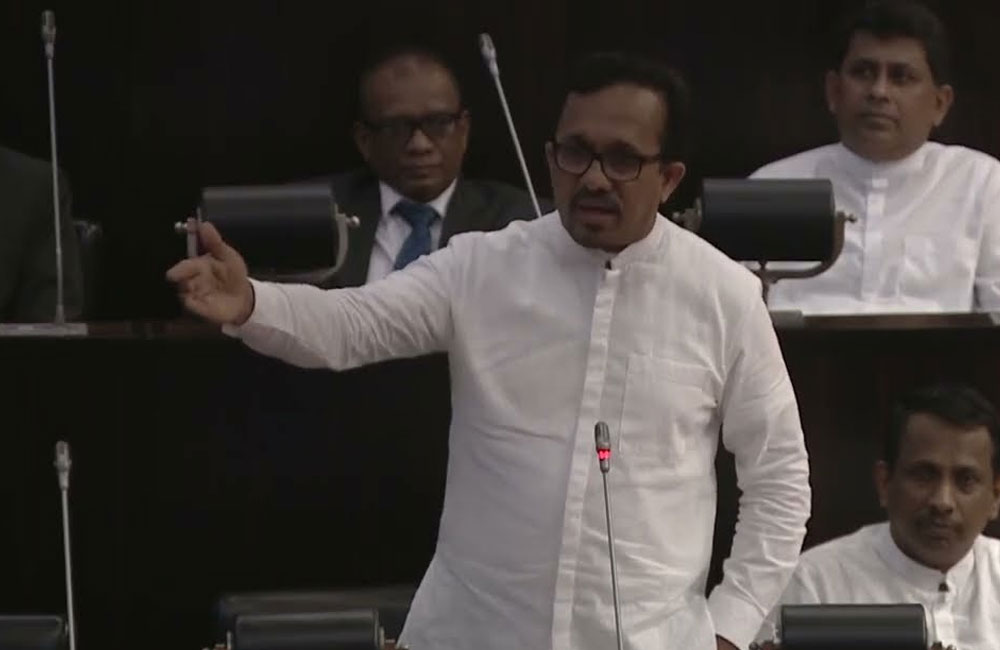
Happy to be called ’father of brown sugar’: Hadunnetti
Claiming that social media has started to call him 'father of brown sugar' after the opening of a brown sugar outlet in Nugegoda recently, Industries Minister Sunil Hadunnetti said today he is happy to be called the 'father of brown sugar' rather than 'father of white sugar'.
He told Parliament that the Ministry is attempting to promote the consumption of brown sugar in a move to save foreign currency.
The Minister said Sri Lanka has imported 2,502 million metric tonnes of sugar during the last five years at a cost of Rs. 350 billion (more than USD 1500 million).
"Brown sugar is healthier than white sugar. Is it wrong to promote brown sugar," he asked.
(Source - Dailymirror)
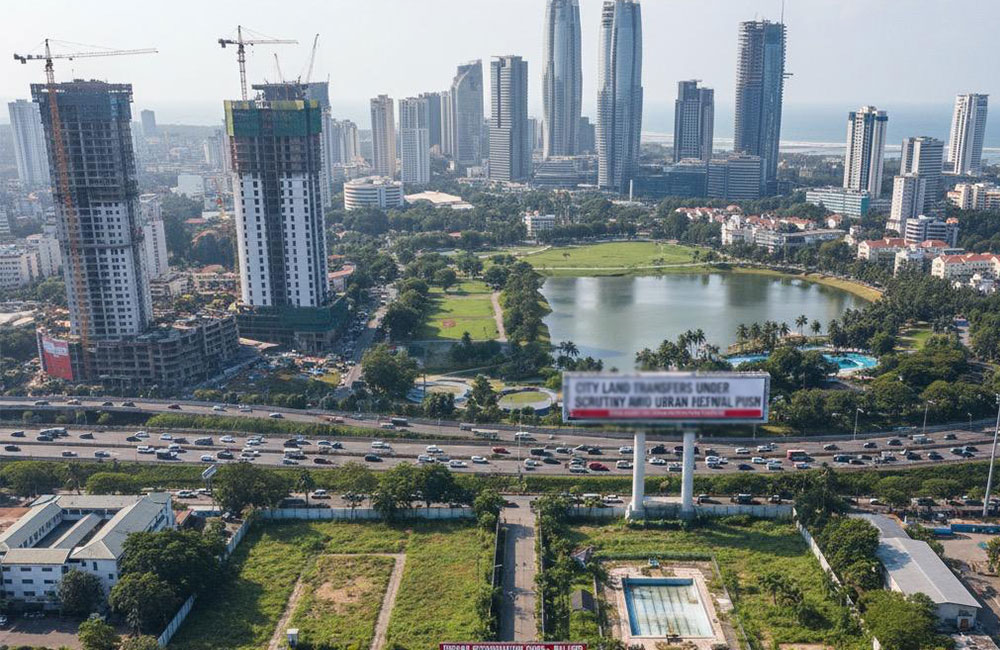
City Land Transfers Under Scrutiny amid Urban Renewal Push
Sri Lanka’s ambitious urban modernization drive meant to transform key cities into modern, livable, and commercially vibrant spaces has come under renewed scrutiny following delays and questions surrounding the transfer and use of prime state lands in Colombo and other major cities.
Documents reveal that Cabinet approval was granted on 27 October 2020 to transfer both government and privately held lands to the Urban Development Authority (UDA) for a series of urban redevelopment projects islandwide.
The move was part of the broader national strategy to rejuvenate Colombo, Kandy, Galle, Jaffna, and other urban centres under the National Physical Plan and the Urban Regeneration Programme led by the Ministry of Urban Development and Housing.
Under Cabinet Memorandum No. MUD/H/2020/CP/37, dated 12 October 2020, the UDA was authorized to take possession of 45 identified lands, some already occupied by private clubs and institutions.
Among these were three high-value plots totaling 1.8274 hectares, which housed the Otters Aquatic Club and the 80 Club Colombo—two long-established social institutions in Colombo’s most valuable real estate zones.
Although the Cabinet decision permitted the UDA to develop, open, and repurpose these lands for public use, the Authority has yet to utilize them effectively for commercial or public benefit.
According to finance ministry observations issued on 16 October 2020, any revenue generated through the commercial use of these lands was to be credited to the Consolidated Fund, after deducting UDA’s acquisition and development expenses.
However, more than four years later, none of the targeted lands have been commercially developed, raising concerns over administrative inefficiencies, political interference, and potential underutilization of valuable public assets.
Senior sources within the UDA acknowledge that procedural hurdles and disputes over property rights have delayed progress.
The controversy unfolds against the backdrop of several high-profile urban transformation projects currently under implementation.
These include the Colombo City Beautification and Waterfront Development Project, the Beira Lake Restoration and Promenade, the Battaramulla Administrative City, and the ongoing Port City Colombo mega development. Collectively, these initiatives are aimed at reimagining urban spaces, easing congestion, and attracting foreign investment.
The Urban Regeneration Project, launched with support from international agencies such as the World Bank and Asian Development Bank, has already resettled over 50,000 underserved families from informal settlements to modern housing complexes, particularly in Colombo North and East.
Yet critics argue that while the UDA’s housing component has shown visible results, commercial land utilization has lagged, undermining potential revenue generation.
Urban economists point out that strategic use of government-owned land could inject billions into state coffers through public-private partnerships (PPPs), retail complexes, or green urban spaces. “Land in Colombo 7 and surrounding areas is among the most valuable in South Asia.
The longer these assets remain idle, the greater the economic opportunity cost,” said one senior economist familiar with the process.
Meanwhile, opposition lawmakers have demanded a Parliamentary oversight review into why lands earmarked for development such as the Otters and 80 Club properties—remain inactive, and whether their temporary status has benefited any private interests.
As Sri Lanka intensifies its urban renewal agenda amid fiscal strain, the issue highlights a deeper challenge how to balance modernization, transparency, and accountability in managing the country’s scarce urban land resources.
Whether the UDA can translate Cabinet approvals into tangible results will be a key test of its institutional credibility and the government’s broader urban development vision
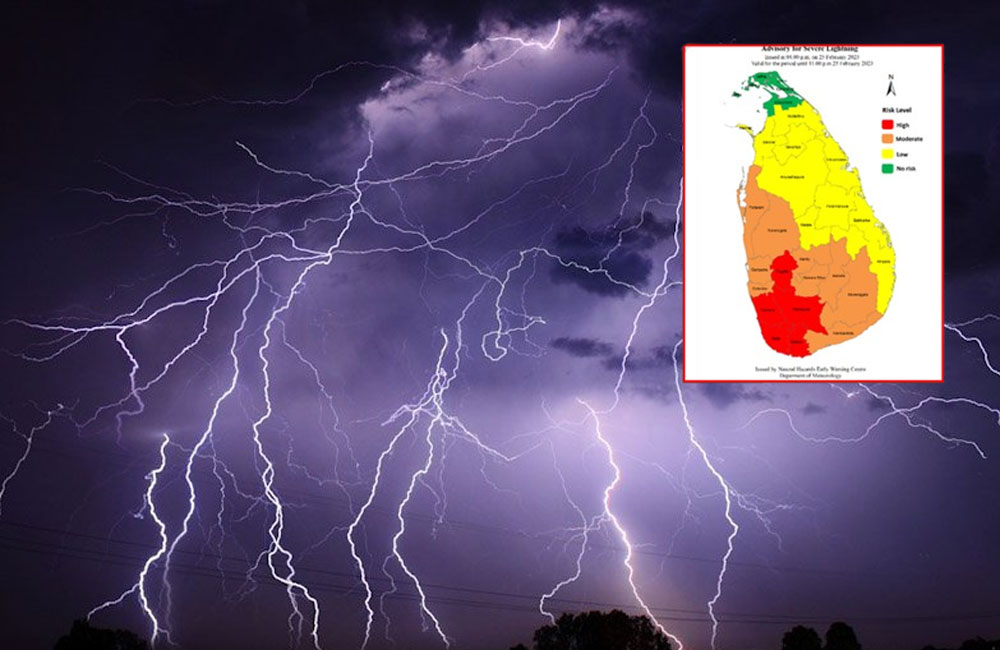
Met Dept Issues Amber Lightning Alert
The Department of Meteorology has issued an Amber advisory warning of severe lightning in several provinces and districts today (13).
According to the Department, thundershowers accompanied by intense lightning are expected in parts of the Western, Sabaragamuwa, and North-Western Provinces, as well as in the Galle and Matara districts. Temporary strong gusty winds may also occur during thundershowers, it added.
The public is urged to take necessary precautions to minimize the risk of injuries or property damage caused by lightning. Residents are advised to remain indoors during thunderstorms and avoid open areas such as paddy fields, tea plantations, and water bodies.
Authorities further caution against using wired telephones or electrical appliances during lightning activity.
For emergencies or assistance, the public is advised to contact their local disaster management authorities.

Smart Digital Launch Energises Sri Lanka’s Shrimp Export Drive
The Shrimp Industry Information System (SIIS) has been officially unveiled by Fisheries Minister Ramalingam Chandrasekar, marking a pivotal step in the digital transformation of Sri Lanka’s shrimp aquaculture sector.
Developed under the Food and Agriculture Organization (FAO) project “Smart and Sustainable Aquaculture through Effective Biosecurity and Digital Technology,” the platform is a joint effort involving the National Aquaculture Development Authority (NAQDA), the National Aquatic Resources Research and Development Agency (NARA), the Department of Animal Production and Health (DAPH), and the Centre for Aquatic Disease Diagnosis and Research (CADDA).
SIIS integrates Internet of Things (IoT), Artificial Intelligence (AI) and advanced analytics to provide real-time, accurate data to shrimp farmers and policymakers alike. The system is designed to uplift productivity, bolster environmental sustainability and support longer-term growth of the sector.
Sri Lanka’s shrimp aquaculture has become increasingly export-oriented, driven by rising global seafood demand and investment in improved farming practices. According to reports, the local industry is dominated by two main species: the traditional black tiger prawn (Penaeus monodon) and the more recently introduced Pacific white shrimp (Litopenaeus vannamei).
Production is concentrated in the north-western and eastern coastal belts of the country. The latest statistics show that the inland-culture shrimp farms accounted for about 5,540 metric tons in the first nine months of 2025, representing around 2 per cent of total inland fisheries production.
Meanwhile the broader aquaculture sector also remains modest compared with capture fisheries, but with strong potential. Market research projects that Sri Lanka’s shrimp market could grow at an average rate of around 7 to 10 per cent between 2025 and 2027, as global demand for sustainably farmed shrimp expands.
Exports of shrimp and prawn products remain a key foreign-exchange earner for the fisheries sector. Recent figures show that for January-September 2025 prawns were exported with a value of approximately Rs 6,064.3 million
The industry is pressing ahead to elevate its performance by adopting stronger bio-security, traceability and value addition in the supply chain. The FAO’s Smart Aquaculture Biosecurity (SAB) initiative is also helping to guide Sri Lanka’s shrimp industry toward sustainable, digital-enabled operations.
However, while the launch of SIIS is a milestone, the sector still faces challenges. Environmental pressures such as wetlands loss, shrimp-farm effluent discharge and biodiversity decline have been identified in recent ecological studies in regions such as Batticaloa.
At the same time, Sri Lanka’s shrimp producers must compete with larger volume producers in Asia, maintain access to demanding export markets in the EU, US and Japan, and meet increasingly strict certification and traceability standards.
Experts believe the SIIS can play a critical role in addressing these challenges by enabling better monitoring of farm-level parameters, disease outbreaks, and logistics flows. For farmers, real-time alerts can reduce losses; for regulators and policymakers, the system offers insights to guide sustainable development.
As the industry evolves, the combination of digital innovation and export market focus places Sri Lanka’s shrimp farming sector at a strategic crossroads. The SIIS rollout is being heralded as a key enabler of growth, competitiveness and sustainability in the coming years.
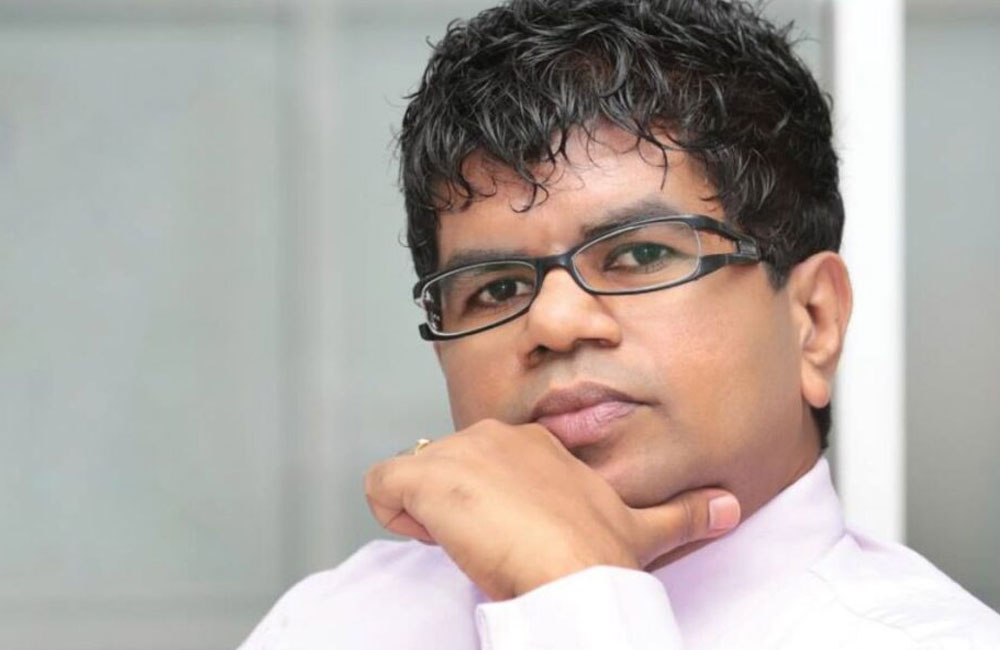
Arrest warrant issued for former NLB Director Thusitha Halloluwa
Colombo Additional Magistrate Lahiru Silva today issued a warrant for the arrest of the former Executive Director of the National Lotteries Board (NLB), Thusitha Halloluwa for failure to appear before the court over an incident involving a false complaint.
Halloluwa allegedly filed a complaint claiming that a group of people had opened fire on the vehicle he was travelling in in the Narahenpita area.
The suspect failed to appear in court when the case was called today, said Ada Derana reporter.
Accordingly, the Magistrate ordered the issuance of a warrant for his arrest and production before the court.
(Source : adaderana.lk)
Page 80 of 681